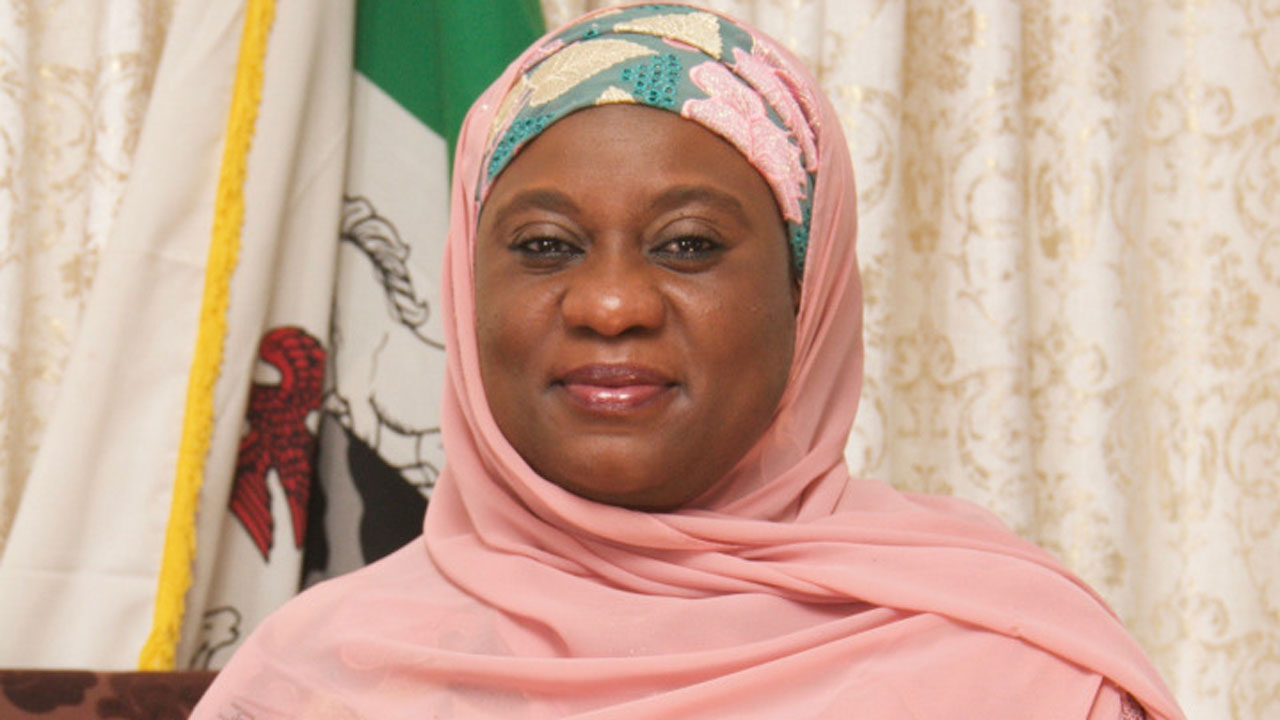
*FLAC seeks integration of HPV vaccination into national immunisation programme
*Advocates special fund, treatment centres nationwide to reduce tumour cases, deaths
Determined to reduce rising cases and deaths due to cervical cancer, Nigeria’s First Ladies Against Cancer (FLAC) has reiterated its support for the Global Strategy to Accelerate the Elimination of Cervical Cancer as a Public Health Problem.
The first ladies have called for bold actions to ensure that the strategy’s 90-70-90 targets are achieved for women and girls throughout the country. “We stand ready to work in partnership with other national stakeholders to ensure that these global commitments are taken forward in Nigeria. As a group of women leaders, we call for early steps in Nigeria to send a strong signal of the importance of cervical health to women, our communities and our economies despite the COVID-19 pandemic,” they declared.
With three key strategies and clear 2030 targets- an increase of Human Papilloma Virus (HPV) vaccination to 90 per cent, twice-lifetime cervical screening to 70 per cent, and treatment of pre-invasive lesions and invasive cancer to 90 per cent (also known as the 90-70-90 targets)- this global call-to-action provides a roadmap to eliminate cervical cancer.
HPV is mainly transmitted through sexual contact and most people are infected with HPV shortly after the onset of sexual activity. Cervical cancer is caused by sexually acquired infection with certain types of HPV.
A consultant obstetrician and gynaecologist, Chairperson, First Ladies Against Cancer (FLAC), and wife of the Executive Governor of Niger State, Dr. Amina Abubakar Bello, in a virtual interview with The Guardian, identified low levels of awareness and late presentation for screening as the leading causes of cancer mortality in Nigeria.
Bello said increased advocacy by multiple stakeholders has led to some levels of prioritisation and the approval of a fund for cancer patients by the Federal Government. She reiterated the importance of partnerships with grassroots organisations like FLAC to create awareness among key stakeholders and mobilise action towards reducing the cancer burden in Nigeria.
FLAC is a coalition of current and former first ladies in Nigeria with an overarching goal to reduce cancer incidence and mortality and improve the quality of life of people living with cancer by increasing awareness. FLAC primarily carries out its activities through awareness programmes, support interventions and advocacy efforts. In 2019, the organisation commissioned a ward at the Gwagwalada Hospital in Abuja for cancer patients in support of the World Health Organisation’s (WHO) Cervical Cancer Elimination Strategy Goal.
Bello told The Guardian: “I am part of the Director General of the WHO’s group on the elimination of cervical cancer that is headed by Dr. Princess Nothemba Simelela, Assistant Director-General for Strategic Programmatic Priorities: Cervical Cancer Elimination. I was appointed into the group in 2018. The group is a collection of a group of people across the world, put together by WHO to form some sort of advisers on the way forward in eliminating cervical cancer. The WHO came up with strategy and the group works together on how cervical cancer can be eliminated in the world. I served under that committee and have been there since 2018 and have had one life meeting and we have been communicating and meeting online and having activities regarding that.
“Basically the idea is to ensure that cervical cancer is eliminated by the year 2030 and there are three pros to the strategy. The first pro is that we want 90 per cent of all girls in the world to be vaccinated against Human Papilloma Virus (HPV) by the year 2030. HPV is the causative agent for cervical cancer and it usually transmitted during sexual intercourse and usually within the first sexual contact. So, the strategy is before it becomes active, they would be prevented from catching HPV, which cause cervical cancer later. The first part of the strategy is for 90 per cent of all girls vaccinated by 2030. The second part of the strategy is that all women between the ages of 35- 45 should have been screened at least once by a high sensitivity test for HPV virus. The idea is once you are able to screen a woman, you detect that she has HPV you are able to detect her and prevent her from actually developing cervical cancer. The third part of the strategy is that 90 per cent of all the women who have been detected to either have a pre cursor or having cervical cancer and have access to treatment by the year 2030. So, this is the strategy.”
Bello, who is also the founder of RAiSE Foundation, a non-governmental organisation whose vision is of a Nigerian where no woman dies from pregnancy-related causes, added: “What we are doing in Nigeria- myself and my other colleagues in the group of first ladies against cancer, is to advocate and bring awareness with these three strategies on how Nigeria can key into it and allow us to reach that target. So, in terms of advocacy, we are advocating that government at the federal or state level is able to provide vaccination for all girls so that it is incorporated in the national immunisation scheme.
“The national immunisation scheme has so many vaccines on it that are accepted by the general public. Now for HPV to be available to everybody in Nigeria, it has to be within the national immunisation programme. So, we are advocating the government is able to do that. The second thing is that we are advocating that before the government can actually do that the government has to make the vaccine available. So, we are advocating not just at the governmental level but also at the international level to influence the pharmaceutical companies to produce, so that we in Nigeria can access it.
“Sometimes last year the Health Minister announced that Nigeria will be able to access HPV vaccines with in the first quarter of this year. So, we are waiting expectedly to see that this is happening. In relation to that, we are creating awareness and sensitising the public on the importance of HPV vaccines and the need for it to be acceptable. So, the most important thing we are doing now is to see that it becomes generally acceptable to our people and so we are conducting series of stakeholders meeting and awareness campaigns within our own states to ensure that HPV is acceptable when it now becomes available.”
On what informed her effort to end cervical cancer, Bello said: “My background as you know is that I am a gynaecologist.
So, I have been around women with cervical cancer and one of the problems in Nigeria is that most cases of cervical cancer you see comes to you when they are already in late stages and there is hardly anything you can do to help them survive. Most of the time it is palliative care you give to those patients and it is a certain thing to see because this is a cancer that is actually preventable.
“So, my own personal experience with dealing and preaching to women with cervical cancer is what informed my own interest. We are able to bring this problem to the flour for people to understand and see the gravity of the problem in Nigeria. When I started my Non Governmental Organisation (NGO), which was the RAiSE Foundation, I started 2015. One of the thing about the intervention we do, regarding the reproductive health for women, is to start the cancer prevention programmes.”
On the challenges towards ending cervical cancer in Nigeria by 2030, Bello said: “There are three main challenges. The first one is the lack of awareness of what cervical is, what is available and how it can be prevented in general. It is a task that we have taken upon ourselves that we are able to give that kind of information. So, the challenges regarding the awareness campaign are that there are so many grounds to cover. However, we use our stakeholders, we use our traditional institution, religious and women groups to be able to impart that knowledge. So far, we have found that people accept it when we talk to them. The major problem we are facing is that we should access everybody for him or her to get more knowledge about it. Secondly, the most significant challenge we have is lack of availability of the HPV vaccines in Nigeria and also the lack of a systematic way of screening women to detect cervical cancer within the health care system in Nigeria. We are advocating that states should institutionalise the screening of cervical cancer within the health system and one way we are coping is to ensure that screening services and treatment services are incorporated within the health insurance scheme of each state.
“Thirdly, the other challenge is the funding that is required to screen people to get treated when they discover they have cervical cancer. Cancer treatment is expensive. More than 75 per cent of our population pays for health care out-of-pocket, which is catastrophic for cancer for patients and their family. Even when people are screened and actually found they have cancer, they do not have access to the money required to get the complete and full treatment for the disease.
“One of the most important challenge is lack of access to the proper diagnostic and treatment facilities in the country. We are a population of 200 million and we only have less than 15 cancer treatment centres that are functioning. There is a dearth of treatment facilities, so is important to find a way to fund cancer treatment in the country.”
The gynaecologist said FLAC was inaugurated in 2016 with five first ladies by the former first lady of Ogun State at that time, Mrs. Amosun. Bello said they do activities collectively, provide fund for the treatment of cancer patient within their states. “Every year, we contribute a certain amount of money and we have patients in each of state who we give money for their treatment. All these we do in collaboration with other stakeholders,” she said.
Bello said although Nigeria does not have enough evidence on exactly what is going on regarding all those statistics, cervical cancer is a serious disease and is the next to breast cancer as the major cause of death in women. She said about 80 per cent of women that die of cervical cancer present very late to facilities for treatment.
The medical doctor said cases of cervical cancer is increasing in Nigeria because of increase in awareness and diagnosis. She said the Federal Government should conduct a study to determine the number of women living and dying of cervical cancer as well as set up a special fund for the treatment of patients. “We need to get the commitment of the government to the cancer patient, the government should provide a center for cancer patients and provide more across the country. I want to encourage the government to provide a good well recommended vaccine for the cervical cancer,” Bello said.
Bello, who has a Masters degree in public health, said the vision of RAiSE Foundation is of a Nigeria where no woman dies from pregnancy related causes. She said her work at the foundation has led her to become intimately involved with the plight of women with varying reproductive health issues especially women with obstetric fistula, Breast and cervical cancer.
She has organised several Vesico Vaginal Fistula camps where 226 patients in Niger state have had free repairs and have been reintegrated into the society. Bello said the flagship intervention for the foundation, however is ensuring women deliver safely in the hospital. “I do this by advocacy, sensitisation, intervention, training of skilled birth attendants and providing safe delivery kits for pregnant women.”
Her Foundation unveiled a cancer-screening centre the first of its kind in Niger state dedicated to early detection and preventive therapy of breast and cervical cancer. She has conducted free breast cancer screenings for over 5, 229 women and 4, 076 women for cervical cancer. Her foundation has helped with treatment of those who require further diagnosis and treatment.
She is also involved in cancer awareness programs with series of events that include public lectures on cancer and awareness treks to raise funds for the treatment of cancer patients. Her foundation is set to create mini screening centres across the three senatorial zones of Niger State.
She is passionate about projects that directly affect women positively and is involved in empowerment schemes for women and education for the girl child.
She has established RAiSE Foundation skill acquisition centre where women and youth are being trained in tailoring, embellishments, beadwork and leather work.
Bello is also the Chairperson Northern Governor’s Wives Forum. In her position as chairperson she spearheads the forum’s drug addiction prevention programme and recently advocacy and sensitisation programme against gender based violence.
In her spare time, she likes solving puzzles, reading and spending time with her family. Bello said she still works twice a week at the General Hospital Minna.






